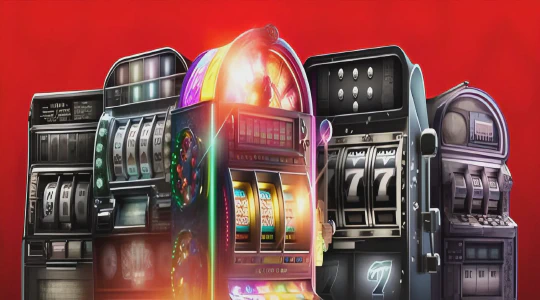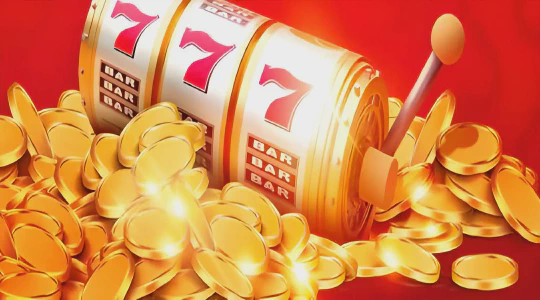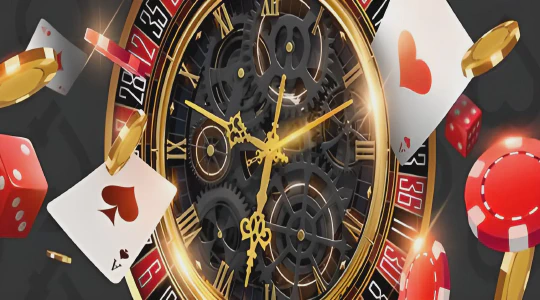Play Poker Without Chips: Expert Tips and Strategies
Have you ever found yourself in a situation where you are itching to play poker but don’t have any chips? Well, worry not! There are ways to play poker without chips, and it can be just as fun and exciting as playing with the real deal.
Playing poker without chips may seem challenging at first, but it is possible with a few simple tips and tricks. The game requires you to have a good understanding of the rules, be able to read your opponents, and make informed decisions based on the cards you are dealt.
If you are looking for a new and exciting way to play poker, then playing without chips can be one of the best alternatives. This article will explore some tips and tricks on how to play poker without chips successfully. So, gather your friends and get ready to learn some new tricks in the game of poker!
The Origins of Poker
For centuries, people have been playing various games of chance with cards. However, the exact origins of poker are still a topic of debate among historians and scholars. Some believe that the game evolved from the Persian game of As Nas, which was played with a deck of 25 cards and involved rounds of betting. Others suggest that the game was created in Europe, based on a variety of card games that were popular at the time.
Regardless of its origins, poker as we know it today began to take shape in the United States during the 19th century. The game was played primarily in the saloons of frontier towns, with various regional variations and rules. As the popularity of poker grew, so did the number of variations and styles of play, such as five-card draw, seven-card stud, and Texas hold 'em Mostbet.
By the early 20th century, poker had become a fixture of American culture, with high-stakes games played by celebrities and politicians alike. The advent of televised poker in the late 20th century further increased the game's visibility, turning famous poker players into household names and helping to fuel a global poker boom.
- As of today, poker is played worldwide in a variety of different formats and styles, both in casual settings and in highly competitive tournaments with massive prizes at stake.
- Whether you're a seasoned pro or a beginner, understanding the history of poker can help you appreciate the game and its many nuances.
| Year | Event |
|---|---|
| 1829 | First documented game of poker played in New Orleans. |
| 1875 | The joker card was introduced to poker. |
| 1970 | First World Series of Poker held in Las Vegas. |
| 2003 | Chris Moneymaker won the World Series of Poker Main Event after qualifying through an online satellite tournament, sparking a huge surge in online poker playing. |
What You Need to Learn How to Play Poker without Chips
1. A Deck of Cards
First and foremost, you'll need a deck of cards. While this may seem obvious, it's important to make sure you have a standard deck of cards with 52 cards and four suits - hearts, clubs, diamonds, and spades. Without a deck of cards, you won't be able to play any version of poker.
2. Players
No game of poker can be played without players. You'll need at least one other person to play against, but in general, the more players, the better. Poker is a social game, so make sure you gather some friends or family members to join you.
3. A Table or Flat Surface
You'll need a flat surface to place the cards on, and a table is ideal for this. Make sure it's big enough to accommodate all the players, and that it's sturdy enough to support the weight of the cards and any other accessories. If you don't have a table, just make sure the surface you choose is flat and stable, so the cards don't slide around.
4. Pen and Paper
While playing poker without chips, it can be helpful to keep track of each player's bets, as well as the overall pot, with pen and paper. This way, you can avoid confusion and keep track of the game easily. It's always best to be prepared and have a pen and paper handy, just in case.
5. Basic Knowledge of Poker Hands
If you're new to poker, it's important to have a basic understanding of the different hands and rankings. Familiarize yourself with the rules and hand rankings before you start playing. This will make the game more enjoyable and keep things running smoothly.
Setting the Stakes
When playing poker without chips, it's important to establish the stakes beforehand. Otherwise, it can be difficult to determine who has won at the end of the game. One option is to use small items, like pieces of candy, as stand-ins for chips. Each player can start with a set amount and exchange them as needed during the game.
Another option is to assign a cash value to each item used as a stand-in chip. For example, if using playing cards as chips, each card could represent a certain dollar amount. This ensures that players have a clear understanding of the stakes and can make informed decisions about their bets.
It's also important to determine the buy-in, or the amount of money that each player starts with. This should be agreed upon before the game begins. If playing with a group of friends, it's a good idea to choose a buy-in that everyone is comfortable with. Setting the stakes and buy-in helps prevent any confusion or disputes during the game.
- Tip: Keep track of the bets and the items used as chips to avoid any confusion. It's important to be clear about the standing of each player during the game, especially when there is no physical currency involved.
Dealing Cards Tips and Tricks
Shuffling the Cards
In order to deal a fair game of poker without chips, it's important to shuffle the deck thoroughly before dealing out the cards. This can be done with a standard shuffle, or a riffle shuffle - whichever method you're most comfortable with.
Dealing the Cards
To deal out the cards, start by dealing one card to each player one at a time, beginning with the player to your left. Continue dealing cards until each player has received the appropriate number of cards for the variation of poker you're playing.
Once all players have their cards, it's important to make sure that the cards remain face down until it's time for them to be revealed during the game.
Using a Cut Card
Adding a cut card to the deck can help prevent cheating and ensure fairness during the game. To use a cut card, simply insert it into the deck at a random point before dealing out the cards. When the cut card is reached during the deal, all remaining cards above it are discarded.
Introducing the Betting Round
After the cards have been dealt, it's time to start the betting round. Players can use a variety of items to represent their bets, such as coins or pieces of paper. The rules for betting and raising should be established before the game begins to avoid any confusion.
Knowing Your Hands
One of the first things you need to understand when learning poker is the ranking of hands. Poker hands are ranked from highest to lowest, with the highest being a royal flush and the lowest being a high card. It's important to know the ranking of hands so you can determine the strength of your hand in relation to other players' hands.
Each hand in poker consists of five cards. The cards are ranked according to their face value, with the ace being the highest card and two being the lowest. When evaluating your hand, you will want to consider the rank of the cards as well as their suit.
There are several types of poker hands you should know, including a straight flush, four of a kind, full house, flush, straight, three of a kind, two pair, one pair, and high card. Understanding these hands will help you determine the best course of action when playing poker.
- Straight flush: Five cards in sequential order, all of the same suit. For example, 10-J-Q-K-A of hearts.
- Four of a kind: Four cards of the same rank. For example, four aces.
- Full house: Three cards of one rank and two cards of another rank. For example, three queens and two tens.
- Flush: Any five cards of the same suit, not in sequential order. For example, five hearts.
- Straight: Any five cards in sequential order, not of the same suit. For example, 7-8-9-10-J.
- Three of a kind: Three cards of the same rank. For example, three jacks.
- Two pair: Two cards of one rank and two cards of another rank. For example, two queens and two fives.
- One pair: Two cards of the same rank. For example, two aces.
- High card: When no other hand is formed, the highest card in a player's hand is used as the hand ranking. For example, if no player has formed a pair or higher, the player with the highest card wins.
Knowing the ranking of hands is essential to being successful at poker. Take the time to study the different hand types and practice evaluating them so you can make informed decisions when playing poker.
Basic Rules to Follow
1. Know the Poker Hand Rankings
Before you start playing poker, make sure you familiarize yourself with the various hand rankings. This will help you determine who the winner is when the game is over.
2. Determine the Game Format
There are different types of poker games, such as Texas Hold'em, Omaha, and Seven-Card Stud. Make sure you know which game you're playing and its rules so that you can adjust your strategy accordingly.
3. Set Your Betting Limits
Poker involves betting, so make sure you set limits on how much you're willing to bet. This will help ensure that you don't lose more money than you can afford.
4. Observe Proper Etiquette
Respect your fellow players by observing proper poker etiquette. This includes avoiding distractions, not revealing your cards to other players, and not touching the chips in the pot until you've won them.
5. Pay Attention to Your Opponents
One of the key skills in poker is being able to read your opponents. Observing their behavior, betting patterns, and tells can give you valuable insights into what kind of hand they have.
Bluffing Techniques
Bluffing in poker is an art. It involves telling a different story than the one your hand is actually telling. A successful bluff can turn a losing hand into a winning one. Here are some bluffing techniques:
- The Semi-Bluff: This technique involves betting on a hand that has a chance of improving in later rounds. This can make your opponents fold while giving you a chance to improve your hand.
<li><strong>The Stone-Cold Bluff:</strong> This technique involves bluffing with no chance of a winning hand. It requires good acting skills and a good read on your opponent's hand.</li>
<li><strong>The Continuation Bet:</strong> This technique involves betting on the flop even if you have a weak hand. It gives the impression that you have a strong hand and can force your opponents to fold.</li>
<li><strong>The Reverse Bluff:</strong> This technique involves acting weak when you have a strong hand. This can make your opponents think they have a better hand and can lead to them making bigger bets.</li>
Remember, bluffing is not always necessary in poker and should be used sparingly. It is important to understand your opponents and their playing style before attempting a bluff. Good luck!
Reading Your Opponents in Poker
One of the essential skills in playing poker is reading your opponents. It involves being able to observe and analyze their behavior, speech, and actions during the game. By doing so, you can have a better understanding of the strength of their cards, their betting patterns, and their overall strategy. Here are some tips to help you read your opponents:
- Observe their body language: watch their facial expressions, body posture, and breathing patterns. If they are nervous or uncomfortable, they may have a weak hand.
- Listen to what they say: pay attention to their tone of voice and the words they use. Are they confident or hesitant? Do they make aggressive or passive comments?
- Study their betting patterns: look for consistent patterns in how they bet. Do they raise with strong hands or bluff?
- Watch how they react to your bets: if they quickly call or raise your bet, they may have a strong hand. If they hesitate or fold, they may have a weak hand.
By combining these techniques, you can develop a better understanding of your opponent's playing style and adjust your strategy accordingly. Remember that reading your opponents is not foolproof, and you should always base your decisions on a combination of factors, including your own cards, the community cards, and the size of the pot.
Strategies for Winning at Poker without Chips
1. Understand the Rules
Before starting the game, make sure you know the rules of the specific version of poker you'll be playing. Learn about the different hands, the value of each card, and the order of play. Knowing the rules well will give you an edge and make it easier for you to make quick decisions.
2. Read Your Opponents
When playing poker without chips, it's important to pay attention to your opponents' behavior and patterns. Observe their body language, their reactions, and the way they place their cards on the table. This will help you get a sense of their strategy and what types of hands they might be holding.
3. Start with a Strong Hand
In the absence of chips, a strong hand can be your biggest asset. Be disciplined and patient, and only play when you have one of the top hands. This will increase your chances of winning and help you build a solid reputation as a player.
4. Bluff Strategically
Even without physical chips, bluffing can still be a powerful tool in your arsenal. However, be careful not to overdo it, as your opponents may catch on. Bluff only when the timing and situation are right, and when you have carefully read your opponents and their possible hands.
5. Be Mindful of Your Tells
Just as you should be reading your opponents, they will also be looking for tells in your behavior. Be mindful of any physical or verbal cues that may give away the strength of your hand. Try to keep a neutral expression and maintain the same behaviors for different hands to avoid giving anything away.
Advantages of Playing without Chips
There are several advantages to playing poker without chips that you might not have considered. Firstly, playing without chips allows you to focus on the game itself rather than worrying about the value of each chip. This can help you to develop your poker skills faster and with less distractions.
Furthermore, playing without chips also helps to reduce the risk of cheating. If you play with physical chips, it can be easy for players to sneak in extra chips or manipulate the game to their advantage. However, when playing without chips, everyone is on an even playing field and there is less opportunity for cheating to occur.
Another great advantage of playing without chips is that it allows you to play poker anywhere, anytime. You don't need to carry around a heavy set of poker chips with you or worry about losing them. Instead, all you need is a deck of cards and you can start playing poker with your friends or family right away.
Overall, playing poker without chips has many benefits and can help you to improve your game. Whether you are a beginner or an experienced player, give it a try and see for yourself why playing without chips is becoming more and more popular among poker enthusiasts.
Adjusting to Different Settings
Playing poker without chips can be a fun and challenging way to hone your skills and learn new strategies. However, one of the biggest challenges is adjusting to different settings and circumstances. Whether you're playing with friends in a casual setting or participating in a more serious tournament, adapting to different environments can make all the difference.
One way to adjust to different settings is to pay close attention to your opponents and their playing style. Are they more aggressive or more conservative? Are they taking more risks or playing it safe? By observing and adapting to the playing styles of those around you, you can adjust your own strategy accordingly and increase your chances of winning.
Another important factor to consider when adjusting to different settings is the level of skill of your opponents. If you're playing with beginners, you may need to adjust your strategy to be more forgiving and less aggressive. On the other hand, if you're playing with more advanced players, you may need to step up your game and take more risks to stay ahead.
- Pay attention to your opponents' playing styles
- Adapt your strategy accordingly
- Consider the level of skill of your opponents
- Adjust your playing style to match your surroundings
By adjusting to different settings and circumstances, you can become a more versatile and successful poker player. Whether you're playing with chips or without, always be willing to adapt and learn from those around you.
Etiquette and Fair Play
When playing poker without chips, it is important to maintain the same level of etiquette and fair play as you would in a traditional game with chips. This includes being respectful to your fellow players and abiding by the rules of the game.
One key aspect of etiquette in poker is to avoid discussing the current hand while it is still in play. Doing so can give other players an unfair advantage and ultimately ruin the integrity of the game. Additionally, it is important to keep your emotions in check and avoid insulting or belittling other players, as this can create a hostile playing environment.
Another important aspect of fair play is to avoid cheating. This includes not looking at other players' cards, hiding cards in your sleeves, or making secret deals with other players. Cheating not only violates the spirit of the game but can also lead to serious consequences such as being banned from future games.
- Be respectful of other players
- Avoid discussing the current hand
- Keep emotions in check
- Avoid cheating
Ultimately, maintaining etiquette and fair play in your poker games without chips will help create a more enjoyable and fulfilling experience for everyone involved. By following these guidelines, you can ensure that the game remains fun and fair for everyone.
Playing Poker without Chips with Friends
If you're looking for a way to play poker with your friends without using traditional poker chips, there are several options you can consider. Whether you're trying to save money or you simply don't have access to chips, there are plenty of creative alternatives you can use to make the game more exciting.
One option is to use household items, such as coins or buttons, as makeshift chips. You can assign different values to each item and keep track of the total value of each player's stack using a pen and paper. This method can work well if you're playing with a small group of friends at home.
Another option is to use virtual chips on your computer or mobile device. There are several apps and websites available that allow you to create custom poker games and track your chip count digitally. This can be a convenient option if you're playing with friends who are unable to meet in person.
If you're playing with a larger group of people, you might want to consider using a deck of cards to keep track of the game. Each player can be assigned a specific suit or number, and the value of each hand can be determined by the strength of the cards. This method can be a fun way to switch up the game and get everyone involved.
Regardless of the method you choose, remember that the most important aspect of playing poker is having fun with your friends. Don't get too caught up in the details of the game, and enjoy the experience of spending time with the people you care about.
Online Platforms for Playing Poker without Chips
If you're looking for a way to learn how to play poker without chips, online platforms are a great place to start. There are a number of different websites and apps that allow you to play virtual poker games without the need for physical chips.
One popular option is to play on social media sites, such as Facebook. Many users create private groups where players can join and play poker without the use of chips. This can be a great way to practice your skills and learn more about the game without having to risk any real money.
Another option is to use a dedicated poker app or website, such as PokerStars or 888poker. These platforms often offer a wide range of games to choose from, including free games with virtual chips. This can be a great way to get started with playing poker without chips and build up your skills and confidence.
Some online platforms also offer tutorials and resources to help you learn the basics of the game. For example, some sites offer articles and videos explaining the rules and strategies of different types of poker games. This can be a helpful resource for beginners who are just starting out.
If you're interested in playing poker without chips, there are plenty of online platforms to choose from. Whether you use a social media site, a dedicated poker app, or a combination of both, you can find a way to practice and improve your skills without any risk to your wallet.
Finding Communities and Tournaments
If you are serious about learning how to play poker without chips, joining a community or finding a tournament is a great way to do so. You can find communities online or in person that offer games without chips. These communities may also offer educational resources and support to help you improve your skills.
When finding a tournament, look for ones that offer games without chips or have a low buy-in. This will allow you to practice your skills without risking too much money. You can find local tournaments or online ones that allow you to participate from the comfort of your own home.
- Join online poker communities and forums to find other players who are interested in games without chips.
- Participate in low buy-in tournaments to practice your skills.
- Consider joining a poker club in your area that offers games without chips.
- Look for resources online that can help you improve your poker skills.
Remember to always play responsibly and within your means. With practice and dedication, you can become a skilled poker player without ever having to use chips.



